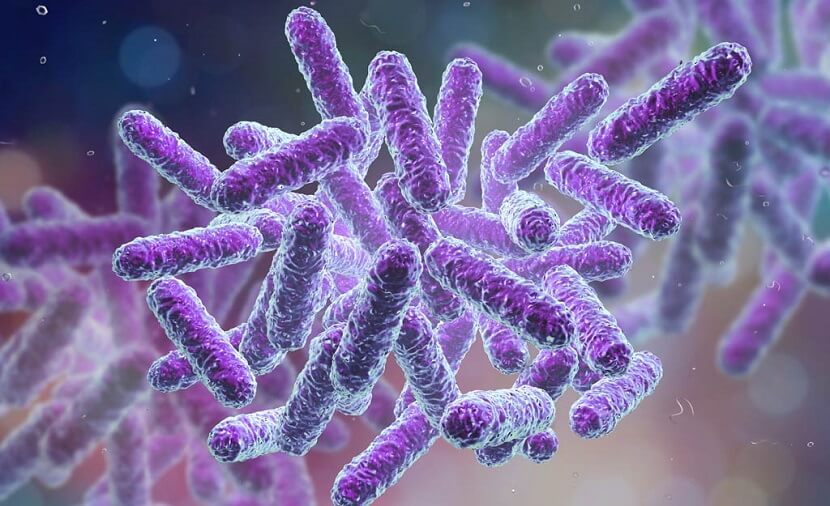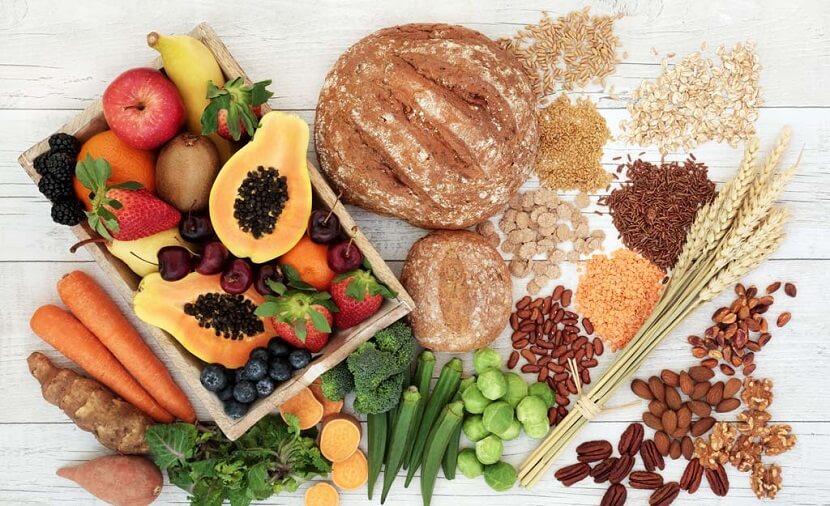Inflammation can often cause the body to feel painful, become reddened or hot, or become swollen. It is the process that happens when the body is protecting you from outside invaders such as bacteria or viruses.
When our hormones are imbalanced, it can increase inflammation, and affect many women. Some examples of inflammatory hormonal conditions can include menopause symptoms, PMS, PMDD, fibroids, and especially endometriosis and polycystic ovary syndrome (PCOS).
These conditions can be painful and impact our daily life. It can affect everything from how we do everyday tasks to how we feel.
The Link Between Food and Inflammation
Studies have shown that it is not just imbalanced hormones that can increase your risk of inflammation. In fact, there are certain foods that can increase it, too. By avoiding these inflammatory foods and embarking on a healthier diet, you can actually decrease your pain and better manage inflammatory symptoms.
In this article, we share with you the most common food groups that can increase your risk of inflammation. Reduce the amount in your diet and feel the results of reduced pain and better health!
Dairy
Studies have found that full-fat dairy, as well as skimmed dairy products which are full of sugar, can disrupt our gut microbiome. Dairy actually decreases levels of our good gut bacteria which are key players in reducing inflammation.
Not only this, but dairy is also a common food allergen, as on average 1 in 4 adults have difficulty digesting milk. This often shows itself as a lactose intolerance or a sensitivity to milk proteins.
Any form of allergen can trigger inflammatory reactions through the release of histamines. Histamines are created when the body senses a foreign invader, such as a milk protein. This produces inflammation in the form of rashes, acne, mental fatigue, and pain.
Try to avoid products such as heavy cream, whole milk, whole milk yoghurt, butter, and full-fat cheese to reduce inflammation.

Artificial Sweeteners
Often found in drinks, desserts, cakes, or chewing gum, artificial sweeteners can disrupt the composition of our gut microbiota by decreasing levels of good bacteria. This good bacteria can help to release anti-inflammatory compounds and reduce inflammation.
Try to look for products that do not contain artificial sweeteners, or reduce the amount you consume.
Artificial Colors
Like sweeteners, these are often found in sweets and cakes, but also cereal, ice-cream, among other foods.
Artificial colourings have been implicated in a host of health issues, from disrupting hormone function to causing hyperactivity in children.
But it has also been found that our immune system attempts to defend the body from artificial colours which activates the inflammatory cascade.
Meat
“A large study links red and processed meat with a higher risk of heart disease and death. Eating two servings of red meat, processed meat, or poultry–but not fish–per week was linked to a 3 to 7 percent higher risk of cardiovascular disease. Eating two servings of red meat or processed meat–but not poultry or fish–per week was associated with a 3 percent higher risk of all causes of death”.
One issue with meat is the farming of animals. Persistent Organic Pollutants (POPs) are toxic synthetic chemicals that accumulate in fat. Another issue is the creation of inflammatory carcinogens when we fry or grill meat at high temperatures. If you are going to cook red meat try to use an acidic marinade to help break down these compounds.
Besides limiting red meat consumption to once a week, make sure you pick up lean cuts of organic, grass-fed beef for your protein. This healthy source provides more beneficial saturated and trans fats as well as inflammation-fighting omega 3's.
Processed Meats
Processed meats are typically made from red meats high in saturated fats and contain large levels of advanced glycation end products (AGEs). AGEs are inflammatory compounds that are generated when these processed meats are dried, smoked, pasteurized, and cooked at high temperatures.
That’s not to mention the fact that these highly-altered meats are injected with nitrates, preservatives, colourings, and artificial flavourings that also register as foreign attackers to our immune system.
Both the meat and the artificial colours and flavours combined make this particularly important to avoid when looking to reduce inflammation.
White Bread & Bakery Treats
Many of the breads on the market can go from flour and yeast to baked bread in just a few hours. But this shortening of the period of fermentation causes a decrease in the amount of starch and gluten the yeast typically can pre-digest for us.
Without this assistance in digestion, it can be harder for our bodies to process the bread’s gluten, causing inflammation in the lining of the intestines. This is possibly one of the reasons for the rise in gluten sensitivity. Another theory is that modern strains of wheat contain amylopectin A, a super-starch shown to have inflammatory effects. Wheat is also grown with an array of chemicals and processed with bleaches and more chemicals known to cause inflammatory responses. Sourdough bread, especially if it’s organic, is a fermented food that can provide some healthy probiotics.

Alcohol
While some research has shown that a drink a day (a glass of red wine) can lower levels of the inflammatory biomarker C-reactive protein (CRP), too much alcohol actually has the opposite effect. That’s because the process of breaking down alcohol generates toxins by residues which can damage liver cells, promote inflammation, and weaken the body’s immune system.
Saturated Fats
Many studies have connected saturated fats with triggering white fat inflammation. This is the type of fat that stores rather than burns energy like brown fat cells do. And as your fat cells get bigger with greater intakes of saturated fats, they actually start a reaction in the body that creates inflammation.
Trans Fats
Synthetically produced, partially hydrogenated oils – also known as trans fats – do not occur naturally in foods and our body doesn’t possess an adequate mechanism to break them down. When our body senses an unknown foreign object, it can stimulate an inflammatory response.
According to the Mayo Clinic, these trans fats can cause inflammation by damaging the cells in the lining of blood vessels. An unhealthy diet loaded with trans fats can cause high inflammatory markers in blood tests.
Trans fats are often found in fried food, baked goods, processed food, and margarine.
How To Avoid Inflammation
Some foods contain many ways that could cause inflammation. For example, cakes are saturated fats yet can also include artificial flavours and colours, too. For best results, try to avoid foods that have multiple ingredients or elements that can increase inflammation.
There are also certain foods that act as natural anti-inflammatories; by increasing these foods you can effectively quench inflammatory compounds in the body.

Just some anti-inflammatories are:
- Berries
- Fatty fish (such as salmon, sardines, and herring)
- Green tea
- Extra virgin olive oil
- Dark chocolate
- Turmeric
Turmeric is an excellent addition to a healthy diet to assist in reducing overall inflammation levels and the inflammatory process. Turmeric contains a component called Curcumin that can be used to help relieve symptoms such as asthma, arthritis, swelling, allergies, and general aches and pains.
With our product Happy Turmeric, it is easy to feel the health benefits of turmeric. Simply add to your morning juice or smoothie daily and reduce inflammation in the body naturally.
Summary
If you are suffering from symptoms associated with inflammation or hormonal imbalances we strongly suggest taking 10 minutes to complete our women's Online Health Assessment. It is free and we will send you a comprehensive report outlining your next steps to take back control of your symptoms and health naturally.
For further guidance on how to avoid inflammatory foods, check out our latest HAPPY HEALTHY YOU book which shares how to increase natural anti-inflammatory foods in the diet. It also teaches you how to have a predominantly plant-based diet loaded with green foods that trigger an alkaline (less acidic) body pH. Just click on the image below to order your copy online.
Don’t struggle with inflammation and hormonal balance alone. Through these tips and recommendations you can reduce inflammation and feel like your best self. Here’s to a happy, healthy YOU!
REFERENCES
Kelly K. Ferguson, Rita Loch-Caruso, and John D. Meeker. Exploration of Oxidative Stress and Inflammatory Markers in Relation to Urinary Phthalate Metabolites: NHANES 1999–2006. Environmental Science & Technology. 2012 46 (1), 477-485.
https://pubs.acs.org/doi/abs/10.1021/es202340b
Janice K. Kiecolt-Glaser, Ph.D. Stress, Food, and Inflammation: Psychoneuroimmunology and Nutrition at the Cutting Edge. Psychosomatic Medicine. 2010 May; 72(4): 365–369.
https://www.ncbi.nlm.nih.gov/pmc/articles/PMC2868080/
Minihane AM, et al. Low-grade inflammation, diet composition and health: Current research evidence and its translation. The British Journal of Nutrition. 2015 Oct 14; 114(7): 999–1012. https://www.ncbi.nlm.nih.gov/pmc/articles/PMC4579563/
Yuval Itan, Adam Powell, Mark A. Beaumont, Joachim Burger, Mark G. Thomas. The Origins of Lactase Persistence in Europe. PLOS Computational Biology. 2009 Aug 28.
https://doi.org/10.1371/journal.pcbi.1000491
Northwestern University. "Eating red meat and processed meat hikes heart disease and death risk, study finds." ScienceDaily. 2020 Feb 3.
https://www.sciencedaily.com/releases/2020/02/200203114328.htm











Leave a comment
This site is protected by hCaptcha and the hCaptcha Privacy Policy and Terms of Service apply.